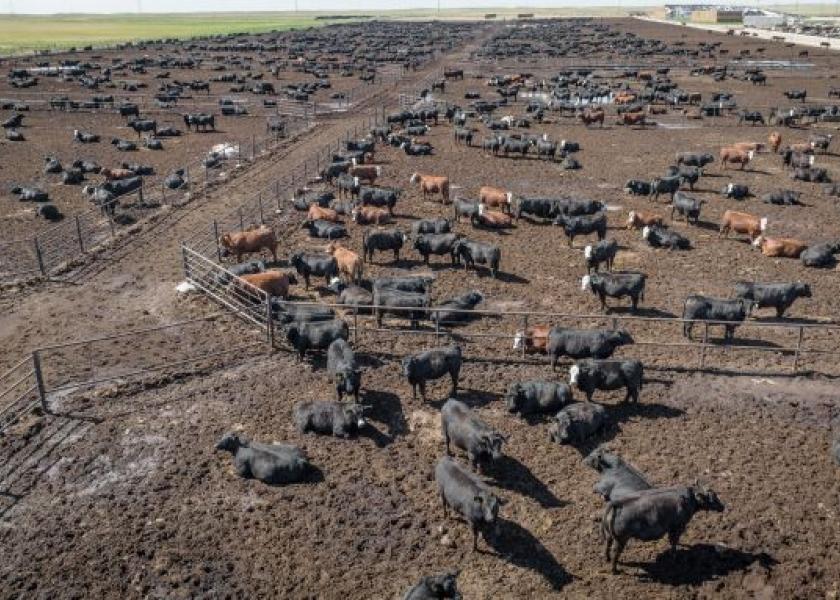Startup Packers Aim To Be Reliable Sources

It is not hard to find smart people who think the producers behind all these proposed producer-owned packing plants are bound for a beating. And there’s no doubt there are headwinds.
Existing packers are hard-fisted, highly efficient, well-established businessmen, generally recognized as not unwilling to hold competitors’ feet to the fire. And there’s the timing thing: Cow numbers have reached the point that the bottleneck that allowed those record-setting packer margins the last couple of years is opening, meaning the packers’ pickin’s aren’t going to be so easy for a while
And it’s not just the existing competition: Lots of new plants, big and small, are planning to come on line in the next couple of years. (Nevil Speer counts 11,000 head per day capacity planned.) USDA is loaning out millions to get more local processing. People who know the processing industry almost universally predict the next few years will be something like a Bataan Death March for the startups.
But, call around, and you find folks think two of the bigger ones “have wheels,” as one analyst put it. They’re not just selling into a commodity market expecting to outwit the big boys because, “darn it, producers deserve more.” (Note: this doesn’t mean the others are doomed. Just that folks seem to think these two have better chances for success in a hard world.)
One is Sustainable Beef, LLC, in Nebraska, already breaking ground. They’ve got contracts with producers so that “almost every shackle will have a name on it,” as CEO David Briggs put it. So: Supply. And not just any old supply, but rows and rows and boxes and boxes of juicy, black high-grading Nebraska carcasses. And, oh, yeah, WALMART! Walmart bought a share of the company as part of its effort to provide sustainable beef to consumers.
The company plans to handle 1,500 a day.
Producer Owned Beef in Amarillo plans to break ground on a plant twice that size in January. They don’t’ have Walmart as a partner (as of this writing, anyhow) but they have…TEXAS! Meaning, 30 million Texas-proud beef eaters.
And, by the way, they’re in what has been for a few years now a (packer) buyer’s market in that part of the world. Texas produces more fed cattle than any other state, but harvests fewer than Nebraska or Kansas. Since Excel closed its Plainview plant, the state has seen its historic positive basis (vs the Midwest) turn negative, as significant numbers have to be shipped north.
The Nebraska folks are leaning on the “sustainability” angle, and that is part of what piqued Walmart’s interest. Like a lot of consumer businesses, Walmart wants to sell itself and its products as “globe-friendly.” Sustainable Beef plans third party verification for sustainability projects.
The Texans are going beyond the “contract local cattle” model. They’re organized as a coop hybrid, based on the Wholestones Farm producer-owned pork processor in Nebraska.
Producer Owned Beef is based on shares producers buy. The producers will be obligated to deliver cattle based on the number of shares they own. The producers will receive 85 percent of the weekly cutout value, based on the cattle performance, plus a share of the profits the company makes.
CEO Casey Cameron says that means the company will be operating on a 15 percent farm-wholesale margin, but it will be insulated from price volatility because what they pay for cattle depends on what they get for beef.
All the cattle will be sold on the grid, so that A) better cattle bring more money and B) the producer gets the carcass data back.
That’s why some of the 150-plus current investors are cow-calf producers. For them, it is something of a direct marketing program, but with scale. (There is a 500-head minimum, but shares are still available.)
Both companies point out that the newest plants the big 4 operate are decades old, and they think newer technology is going to help them cut labor costs and, significantly, handle the bigger carcasses of today more efficiently.
So both plants have “captive supplies” and one has at least a partial “captive market” with Walmart. (Details of that arrangement are proprietary, says CEO Briggs)
One thing producers have overlooked in this COVID-era is the fact that meat purveyors hated the packer-controlled bottleneck as much as cattle people did. What cattle people saw as a constrained market, grocers saw as restrained supply. They’re looking for reliable sources. That will work in favor of startups.
Again, there are headwinds aplenty. One of the big ones is that forecast shrinking supply of fed cattle. Both companies expect numbers to be moving back up by the time they come on line, but that still leaves things like finding labor, housing for those workers, the big job of getting a competitive price for the “everything but the moo” non-beef parts of a cow.
The Big Four aren’t exactly standing still, either. Within days of the POB’s announcement, Tyson announced a major remodeling at its Amarillo plant, perhaps 10 miles from the new operation’s groundbreaking site.
So. Yes. Headwinds. But, hey, you can’t get a plane off the ground without a headwind. So, good luck, folks.







